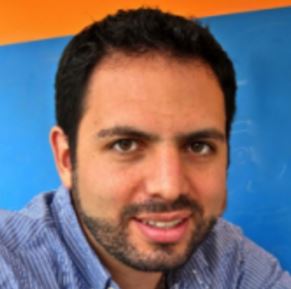The Science of Delivery, adopted by the WWP for its case studies, facilitates the exchange of experiences by using a common methodology and taxonomy. It was the theme of a course in Brasilia

Brasília, April 28, 2017 – International development projects produce differing results regardless of financial resources, qualified technical knowledge and the efforts of well-meaning professionals. How to ensure that project interventions in countries around the globe can always generate the expected changes in people’s lives? The Science of Delivery approach, a methodology of knowledge production used in the Case Studies of the Brazil Learning Initiative for a World without Poverty (WWP), aims to produce more practical and consistent results. This is the subject to be tackled in a course organized this month in Brasilia by WWP in partnership with the Global Delivery Initiative (GDI) and Brazil´s National School of Public Administration (ENAP).
According to Daniel Ortega Nieto, World Bank Operations Officer in the GDI, “ordinary day-to-day issues can either make or break a project. Regardless of the region or sector, every program always has problems of implementation”.
The aforementioned Global Delivery Initiative is a collaborative effort focused on creating a collective and cumulative evidence base of Delivery Know-how. The GDI has since 2015 sought to help managers prepare and solve so-called Delivery Challenges at the project design and implementation stages.
Delivery Challenges, and the Science of Delivery, are terms to describe how the exchange of knowledge can benefit from focusing not only on results but also on the process. The underlying concept is that knowledge flows more readily among countries, institutions and professionals if common methodologies and taxonomies are adopted for preparing case studies and other experience-sharing tools.
The GDI, which now has the support of more than 30 partners (including the WWP), came about as the result of governments, development agencies, banks, multilateral and non-governmental organizations realizing that their operations all faced similar challenges.
The course “Preparing Public Policies Case Studies”, using the Science of Delivery method, which took place at the National School of Public Administration in Brasilia on April 27 and 28, was attended mainly by Brazilian federal government staff working on public policies. The classes were taken by Daniel Ortega Nieto and Claudio Santibañez, Senior Economist in the World Bank’s Science of Delivery team.
This course involved attendees in an online exercise prior to the actual classes, and a requirement to produce, at the end of the course, Delivery Notes referring to a case study based on a particular public policy or program.
Three questions for Daniel Ortega Nieto

Daniel Ortega Nieto was in Brasilia to teach course on the science of Delivery
In the GDI, Daniel Ortega Nieto works with DeCODE. This is a “predictive” data tool which uses a large database to anticipate the kind of implementation challenges that a manager might have to confront. Once a country and a sector are selected, the interested party is then connected to people dealing with the same subject in a range of international agencies, as well as to the relevant literature.
In addition to allowing public access to the DeCODE tool, the GDI also provides a virtual library, communities of practice and a teaching area.
Interviewed by WWP during his visit to Brazil, Washington-based Mr. Ortega Nieto highlighted the advantages that a common methodology can bring to knowledge exchange between organizations and people from quite different situations.
WWP – Why do you need a common methodology to conduct Case Studies?
Ortega Nieto – Case studies in the ??international development area generally very much focus on who financed and who received the benefit of a given project, as well as its potential impact. But knowledge is not just about the “what” but also the “how”. This is what we focus on in GDI. It helps one to understand how a team or government has addressed the particular Delivery Challenges involved in getting from point “A” to point “B”, and what the “C” and “D” alternatives were – and why this route was not taken. The focus is on the process rather than simply the impact or outcome – which of course are important, but where we can detect a lack of the kind of literature that could lead to a better understanding is on the processes. With the taxonomy of Delivery Challenges we have a framework for conducting a case study, together with different organizations that speak the same language, thereby facilitating the sharing and the access to and production of knowledge.
WWP- But does this not already exist?
Delivery know-how certainly exists, but it is difficult to access it since it is mainly concerned with technical issues, and the actual process needed by the development professional during project implementation is disregarded. For example, maternal mortality has reduced in such-and-such a country thanks to a specific intervention. However, if I try to implement a similar intervention in Mexico, for example, I will need to familiarize myself with the process and the Delivery Challenges involved. I also need to know how you engaged with local stakeholders, how you solved procurement problems, and how you handled monitoring and evaluation. This information is often unavailable – only the results. We therefore stress the need to create a Delivery know-how knowledge base and ensure that professionals are properly connected to facilitate the exchange of tacit knowledge.
The course in Brazil has federal government managers on it. How do you reckon the course will benefit a group of people that is not at the sharp end of programs implementation?
One benefit is the emphasis on the importance of a concrete dialogue on Delivery Challenges. While we of course need both the strategic and robust design aspects of a given project, it is ordinary day-to-day issues that can make or break a project. Although you might not be at the cutting edge of a project, you certainly need to aware of the problems experienced by those who are. A further key point is encourage a free-ranging dialogue on implementation issues. When you only draw attention to the success of a particular projects, many lessons are neglected. This is partly why we continue to make the same mistakes over and over again.
See below the series of WWP Case Studies that have used the Science of Delivery methodology
- How to Strengthen Urban Microentrepreneurs: Bahia’s Vida Melhor Program
- The Sertão do São Francisco Territory (IRPAA) – Development of Rural Activities
- Professional training challenges: the Pronatec/BSM experience in Senador Canedo-GO
- Rural Productive Inclusion: The Technical Assistance Experience and Grant from the State of Ceará, Brazil